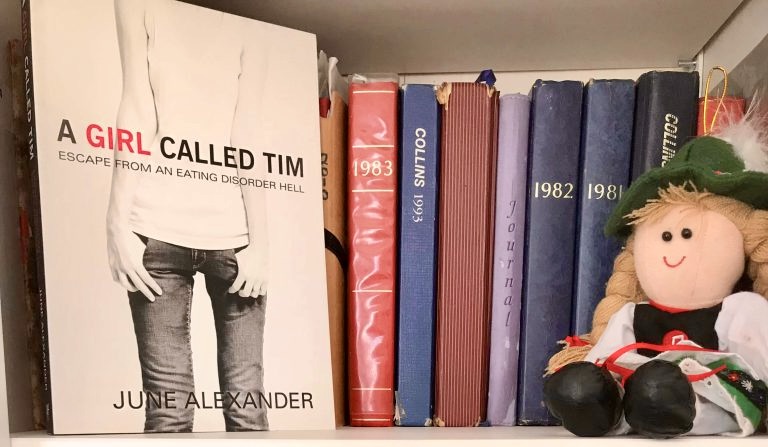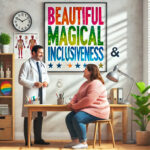Writing your life story with a memoir mentor
Everyone has a story to tell, and this includes YOU.

Writing your life story with a memoir mentor
As a life-writing mentor, I offer guidance in transforming your life experiences into a tangible memoir. You write your truth, crafting your story in your unique voice. This form of self-expression is a precious gift to yourself and your loved ones. Writing a memoir is not just a healing and reflective journey but also a powerful testament to your resilience and strength.
A memoir is a story about your life in your own words and can be written at any age. You might even write a fresh memoir every few decades.
Write your memoir – two stages
“Where do I start?” you might ask. My mentoring guidance provides a clear roadmap for writing your story, and I support you every step of the way. The process is divided into two main stages, each with its own unique focus and tasks.
* In the first stage, you go to what I call “Base Camp.” To reach the base camp, you work through seven writing tasks at your own pace. These tasks help you map the contours of your life, structure your memoir, and outline each chapter. When completed, this initial stage creates a foundation and framework for writing your story.
* In the second stage, you climb your literary Everest. With my guidance, you draft each chapter, bringing your story to a professional, publishable standard. The sense of accomplishment and fulfilment that comes from completing your memoir is immeasurable. This is not just about writing a story; it’s about creating your narrative and leaving a lasting legacy.
Writing as a survival, coping and self-recovery tool
Developing a trusting relationship between yourself and your writing mentor brings many benefits. For example, a mentor can be supportive in navigating, confronting and healing from traumatic experiences, managing grief, recovering from or managing mental illness, and adjusting to significant life changes.
We cannot change painful events in our lives, but we can change how we think and feel about them. Using narrative skills, I offer guidance in transforming painful experiences into a manageable perspective that allows the writer to live more fully in the moment.
As a memoir mentor, I help you develop and improve your self-awareness and problem-solving skills. These skills, in turn, will help you strengthen your self-esteem and self-compassion and embrace a more purposeful life.
When deciding to write your story, what matters is a desire to improve the quality of your life, be the navigator of your life, and remind yourself and maybe others that your life counts.
Diary writing as a therapeutic tool
If you have kept a diary for any part of your life, it will be helpful in mapping and writing your memoir. Whether or not you have kept a diary previously, I encourage you to start regular diary-writing now.
“Start keeping a diary at the same time as I am starting to write my memoir?” you ask. Yes! Diary writing requires us to observe, pause, and reflect and allows us to debrief in a safe place; in this way, the diary-writing process can immediately enrich our memoir writing.
Diary writing or journaling also can help us communicate with others besides ourselves. For instance, we can select and reshape significant extracts from our private diary to share with others in our memoir. Reviewing and drawing on our diary entries can lead to epiphanies and gems of self-understanding that add shine to our memoir. For more about diaries, click here.
Life writing and narrative mentoring
Life writing can be a valuable tool for ‘speaking’ on our behalf when verbalising our feelings seems too difficult.
Finding safe ways to share our private world narratively can enable us to process, validate, debate, and challenge our experiences emotionally.
Sharing writing in a safe, supportive environment can help ease deep-seated feelings of shame and stigma that may cause resistance to engaging more positively in mainstream and realising life dreams. It can also help us gauge helpful responses when sharing snippets of our private world with others.
When we lose confidence or the ability to express our thoughts and feelings verbally, our quality of life can suffer. We can be misinterpreted or misunderstood and feel isolated and alienated. Our memoir can ‘speak’ volumes for us in correcting misconceptions.
Finding safe ways to share our private world narratively can enable us to process our experiences emotionally, validate them, debate them, challenge them, and educate others.
Writing in a safe and supportive environment can also help us gauge helpful responses when sharing brief extracts of our private world with others.
Traumatic and hurtful experiences cannot be undone, and some losses cannot be retrieved. However, narrative mentoring can enable painful emotions and related inhibitions to be addressed, re-packaged, and placed in the context of life in a healing way, allowing us the freedom to move on over time.
Gradually, we can gain confidence in our ability to voice in public the thoughts and feelings we have learned to share through writing with a mentor.
For more than a decade, I have felt honoured to be a narrative mentor, guiding and supporting clients in memoir writing. My PhD explored life writing as a self-healing and therapeutic tool.
How long will it take to write my memoir?
Memoir writing is an individual journey, and a memoir may comprise 20,000 to 100,000 or more words. This is one of those times when the journey is as important as the destination. Memoir writing can become an immense period of self-growth and discovery.
The mentoring timespan varies according to your writing pace, the length of your memoir, and the amount of editing assistance required; generally, allow 18 months. As a first step, I invite you to reflect on why you want to write your story:
* Do you want to write your life story generally or about a specific part of your life, such as a relationship, career, travel, illness, or traumatic experience? Do you have a special message to deliver?
* Have you done some initial work, and would you like advice on how to proceed?
* Have you completed your work and want to refine it, or want advice on sharing your story with others?
* Why do you want to write your story, and who is your envisaged audience?
* Are you writing for yourself only, or do you plan to share your story?
* What kind of mentoring are you looking for? For emotional support, writing skills, and editing expertise? The lot? You are in the right place!
I assist with every stage of your story’s creation
As your memoir writing mentor, my role includes providing the following:
_ Emotional support and encouragement in planning, writing and completing your memoir.
_ Guidance in resource gathering and mapping your narrative.
_ Assistance with writing techniques, editing and proofreading.
_ Understanding and support throughout the entire process of creating your story—the writing process is as important as the completed manuscript. With a mentor, the benefits of writing your story can be many and ongoing.
At all times, you may expect:
_Transparent and objective editing and responses.
_Guidance in developing narrative skills.
_Prompt turnaround of submitted work.
_Opportunity for regular discussion online.
_Support tailored to guide you to that moment when you celebrate your achievement of completing your memoir.
Reach out and start today
You have come to the right place for help with writing your story.
Whatever your age, now is the right time to write, document your journey, and reflect on your life lessons. Even when you have nothing tangible like a diary to draw on, and memories are your primary resource, mentoring assistance can help you create a treasured keepsake for subsequent generations.
Writing your story in your own words will help others to understand you and, in turn, better understand themselves and their place in the world.
So, reach out and start today. Even if you have not written a word for years, with me as your mentor, you will discover how easily your story comes together and how quickly your thoughts can turn into words on a page.
I look forward to helping you reveal, polish, and preserve the priceless gem that is your story.
-
Reach out today to schedule a complimentary 30-minute Zoom call to discuss how I can help you write your memoir.





